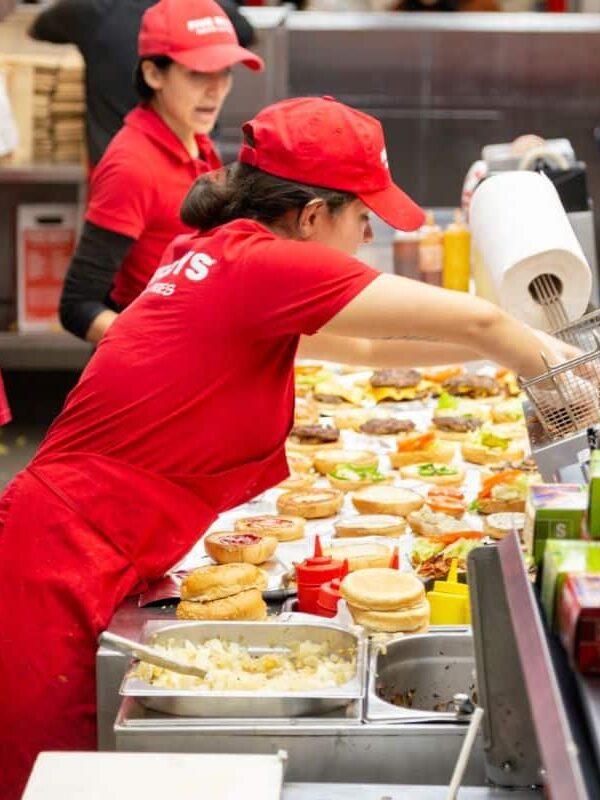Love those supermarket discounts? Think again. Supermarket loyalty programs are less about saving you money and more about mining your data. Here’s what you need to know about the hidden costs of those enticing rewards.
How Loyalty Programs Work

Loyalty programs track your shopping habits in exchange for discounts and rewards. While this seems like a win-win, the data collected is used for more than just personalizing offers.
The Illusion of Savings

Supermarket loyalty programs promise discounts and rewards, enticing consumers to sign up with the allure of savings.
But what if these programs are just sophisticated data mining schemes? Beneath the surface of every price cut and reward point lies a treasure trove of consumer data.
Data Harvesting

When you swipe your loyalty card, you’re not just earning points—you’re giving away valuable information. Supermarkets track your purchases, preferences, and even shopping patterns.
According to a 2018 study by Deloitte, companies are increasingly leveraging data analytics, with a significant majority using these insights to better understand and influence consumer behavior.
This widespread use of analytics underscores the growing trend of data-driven decision-making in the retail sector.
Targeted Marketing

This data is gold for retailers, enabling them to create targeted marketing campaigns. Ever wonder why those coupons seem so relevant? It’s no coincidence.
Retailers leverage data analytics to personalize your shopping experience, and it works. According to Accenture, personalized marketing can boost consumer spending by up to 20%.
This insight into consumer behavior helps supermarkets not only enhance customer satisfaction but also drive sales effectively.
Privacy Concerns

But at what cost? The invasion of privacy is a significant concern. Companies like Nielsen compile detailed consumer profiles, raising questions about how much information is too much.
According to a 2019 survey by the Pew Research Center, 81% of Americans feel they have little control over the data companies collect about them.
This widespread unease highlights the tension between personalized marketing benefits and the desire for privacy, prompting a critical discussion on data usage ethics.
Selling Your Data

The data collected isn’t just for in-house use. Many retailers sell this information to third parties, including advertisers and market research firms.
The Federal Trade Commission (FTC) has noted an increase in data brokers purchasing consumer information from loyalty programs, turning your shopping habits into a commodity.
Consumer Manipulation

These insights allow supermarkets to subtly manipulate consumer behavior. By understanding your shopping habits, retailers can strategically place products, create attractive offers, and even design store layouts to maximize spending.
Studies in the Journal of Consumer Research and other publications highlight how strategic product placement can significantly increase impulse buys, influencing shoppers’ decisions and increasing overall sales.
Security Risks

Data breaches are another risk. With so much information being stored, supermarkets have become prime targets for hackers.
Informed Choices

Consumers need to be aware of what they’re signing up for. Reading the fine print and understanding the terms and conditions of loyalty programs can help you make informed decisions.
The Consumer Federation of America advises consumers to weigh the benefits of discounts against the potential privacy costs.
Opting Out

If you’re uncomfortable with the level of data being collected, consider opting out. There are ways to save money without compromising your privacy, such as using generic coupons or shopping during sales.
The Future of Loyalty Programs

As technology evolves, so too will the methods of data collection. Biometric data and advanced AI algorithms are on the horizon, promising even more personalized shopping experiences.
However, this also raises further ethical and privacy concerns that will need to be addressed.
Striking a Balance

Ultimately, it’s about striking a balance. Loyalty programs offer undeniable benefits, but consumers must remain vigilant about their privacy.
By understanding the data mining schemes behind the discounts, you can make more informed choices and protect your personal information.
Budget Boss: 12 Tips for Managing Your Money Wisely

Embarking on a journey to master budgeting requires evidence-based strategies supported by research to manage your finances effectively and achieve your financial goals. Here are 12 research-backed tips, along with actionable steps to implement them, for mastering budgeting and maximizing your financial well-being. Budget Boss: 12 Tips for Managing Your Money Wisely
Ranking the Top and Bottom 24 U.S. Universities

Wondering which universities are the cream of the crop and which ones fall short of the mark? Today, we’re ranking the 24 best and worst universities in the United States to give you the inside scoop on higher education excellence and disappointment. Are you ready to uncover the highs and lows of academia? Ranking the Top and Bottom 24 U.S. Universities
18 Trending Jobs That Let You Travel While Working

Dreaming of turning your wanderlust into a way of life? Believe it or not, there are careers that not only allow but encourage you to explore the globe, dive into new cultures, and collect experiences instead of things. Here are 18 unconventional jobs that offer just that, with a bit more insight into each. 18 Trending Jobs That Let You Travel While Working
Featured Image Credit: Shutterstock / Ground Picture.
The content of this article is for informational purposes only and does not constitute or replace professional financial advice.
For transparency, this content was partly developed with AI assistance and carefully curated by an experienced editor to be informative and ensure accuracy.





Leave a Reply